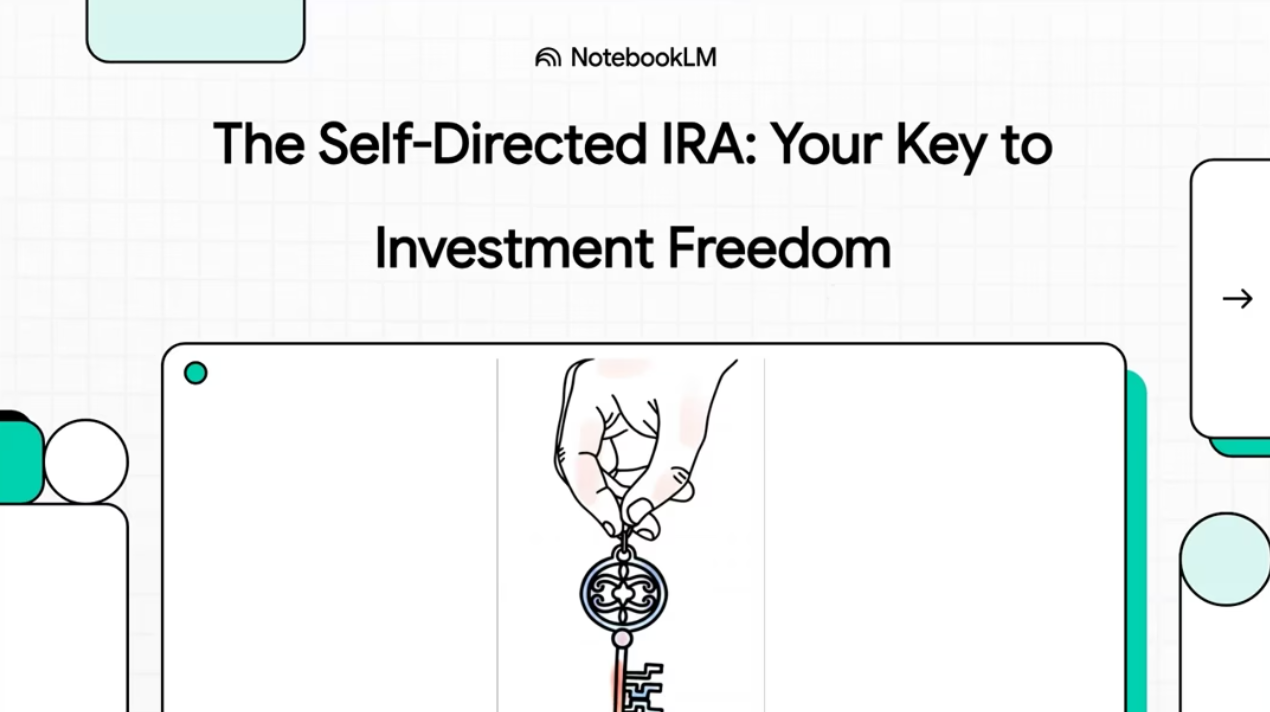SEC Expands Access to Crowdfunding and Private Placements

In the last half of 2020, the Securities and Exchange Commission implemented two significant changes that will expand access to capital for business and allow a broader array of investors to participate in a variety of private offerings.
These changes will make it easier for self-directed IRA and Solo 401(k) holders to invest in crowdfunds, venture capital, real estate syndications, and private real estate equity or debt funds. These investment types have been gaining in popularity for the last several years, but there have been significant constraints on who can invest and how much an investor can put into such deals.
Since the passage of the JOBS act in 2012, the ability of smaller and mid-sized businesses to raise capital has been greatly expanded. The SEC was cautious in their initial JOBS act related rules issued in 2015. The aim was to minimize investor risk by requiring significant disclosures and limiting the amount that could be invested in crowdfunds and other private offerings. Over time, the SEC has determined that those rules can be relaxed to some degree while still providing adequate regulatory oversight.
New Accredited Investor Definition
Many types of private investment offerings are only available to accredited investors. By requiring accreditation, the SEC hopes to ensure that investors will have the necessary sophistication to properly evaluate investment risk.
The prior qualifications for accreditation hinged strictly on measures of wealth. While we can all agree that having a pile of cash does not necessarily make one wise, it would be reasonable to assume that lack of significant capital does not always indicate absence of knowledge either.
On August 26th, 2020, the SEC adopted changes to the Securities Act of 1933 to expand access to private capital markets for individuals and institutions who have the knowledge and expertise to participate effectively and safely.
The new rules went into effect on October 25th, 2020.
The original definition applicable to individual investors remains in place, and applies accredited status as follows:
- An individual with annual income of $200,000 (or $300,000 jointly for married couples) over the last two years, with an expectation of earning the same or higher in the current year.
- An individual or couple with a net worth excluding their primary residence of $1,000,000 or more.
- An entity with equity owners that are accredited as individuals, such as a self-directed IRA or Solo 401(k) held by an accredited investor.
The new guidelines expand accredited investor status to include:
- Individuals with professional certifications or credentials recognized by the SEC. At this time, that includes holders in good standing of Series 7, Series 65, and Series 82 licenses. The list could be expanded by the SEC in the future.
- Individuals who are “knowledgeable employees” of a fund they are investing into.
- A new “spousal equivalent” definition allows those considered spousal equivalents such as same-sex couples to pool their resources for purposes of qualifying as accredited under the normal financial limit rules.
Increased Offering Limits
In a subsequent round of rule changes adopted on November 2nd, 2020 with an effective date of January 1st, the SEC increased the amounts that can be raised across a variety of exempt securities offerings.
Regulation CF limits for crowdfunds have been raised from $1.07 million to $5 million. This will allow a broader array of projects to use this simplified offering format available to both accredited and non-accredited investors.
Regulation A, Tier II offerings were previously capped at $50 million. That limit has been increased by 50% to $75 million. These types of securities are also accessible to both accredited and non-accredited investors.
Regulation D Rule 504 investments, which are only available to accredited investors can now raise up to $10 million. This is double the prior limit of $5 million.
Increased Investment Limits
In addition to increasing the amount of capital that can be raised by investment sponsors, the November rules also increased the amount that an individual can invest in Regulation CF crowdfunds.
Accredited investors can now invest any amount they choose. They were previously limited to investing a maximum of 10% of the lesser of their annual income or net worth within a 12-month period across all crowdfunds they participated in.
Non-accredited investors used to be capped at the greater of either $2,200 or 5% of the lesser of their income or net worth in any 12-month period. The new rule is the greater of $2,200 or 5% of the greater of their income or net worth. For non-accredited investors with a high net worth and low income or the reverse, this may increase the amount they can invest.
A Win-Win-Win
Many industry professionals see these recent changes as a positive and measured evolution of the regulatory framework surrounding the JOBS Act. At eight years old, the JOBS Act is still relatively new. The SEC has been cautious to limit fraud and investor risk, and now sees the evidence that a bit of wise deregulation is in order.
Allowing more types of investment sponsors to attract capital in larger amounts from a wider array of investors produces several benefits. The economy gets a much-needed boost of liquidity and the access to private equity investments is democratized so more individuals can participate in these wealth building opportunities.
What our clients says about us
Quick answers to common questions
We’ll take you through a simple, step by step process designed to put your investment future into your own hands…immediately. Everything is handled on a turn-key basis. You take 100% control of your Retirement funds legally and without a taxable distribution.
YES! In 1974, Congress passed the Employee Retirement Income Security Act (ERISA) making IRA, 401(k) and other retirement plans possible. Only two types of investments are excluded under ERISA and IRS Codes: Life Insurance Contracts and Collectibles (art, jewelry, etc.). Everything else is fair game. IRS CodeSec. 401 IRC 408(a) (3)
It’s actually pretty simple. Early on, regulators let the securities industry take the lead in educating the public about retirement accounts. Naturally, brokers and banks promoted stocks, bonds, and mutual funds—giving the impression that those were the only allowed investments. That was never true... and still isn’t. You can probably guess why they kept the rest under wraps.
It is possible to use funds from most types of retirement accounts:
- Traditional IRA
- Roth IRA
- SEP IRA
- SIMPLE IRA
- Keogh
- 401(k)
- 403(b)
- Profit Sharing Plans
- Qualified Annuities
- Money Purchase Plans
- and many more.
It must be noted that most employer sponsored plans such as a 401(k) will not allow you to roll youraccount into a new Self-Directed IRA plan while you are still employed. However, some employers will allow you to roll a portion of your funds. The only way to be completely sure whether your funds are eligible for a rollover is by contacting your current 401(k) provider.
A Solo 401(k) requires a sponsoring employer in the format of an owner-only business. If you have a for-profit business activity – whether as your main income or as a side venture – and have no full-time employees other than potentially your spouse, your business may qualify. The business may be a sole-proprietorship, LLC, corporation or other entity type.
A self-directed retirement plan is a type of IRA or 401(k) that gives you greater control over how your retirement funds are invested. Unlike traditional accounts held at banks or brokerage firms that limit you to stocks, bonds, and mutual funds, self-directed plans allow you to invest in a wide range of alternative assets including real estate, private businesses, precious metals, cryptocurrency, and more.
These plans still follow the same IRS rules and maintain the same tax-deferred or tax-free benefits as conventional retirement accounts. The difference is simply in how and where you choose to invest.
No. Moving to a self-directed IRA or Solo 401(k) does not trigger any taxes, as long as your funds are eligible for rollover.
Self-directed retirement plans maintain the same tax-advantaged status as traditional plans offered by banks or brokerage firms. The key difference is flexibility—our plans are designed to give you greater control and allow for a wider range of alternative investments beyond stocks, bonds, and mutual funds.
A prohibited transaction is any action between your retirement plan and a disqualified person that violates IRS rules and can lead to serious tax consequences. Under IRS Code 4975(c)(1), prohibited transactions include:
- Selling or leasing property between your plan and a disqualified person Example: Your IRA cannot purchase a property you already own.
- Lending money or extending credit between the plan and a disqualified person Example: You cannot personally guarantee a loan your IRA uses to buy real estate.
- Providing goods or services between your plan and a disqualified person Example: You can’t use your personal furniture to furnish a rental property owned by your IRA.
- Using plan income or assets for the benefit of a disqualified person Example: Your IRA cannot buy a vacation home that you or your family use.
- Self-dealing by a fiduciary (using plan assets for their own benefit) Example: Your CPA shouldn't loan your IRA money if they’re advising the plan.
- Receiving personal benefit from a deal involving your IRA's assets Example: You can’t pay yourself from profits your IRA earns on a rental.
If a transaction doesn’t clearly fall within the allowed guidelines, the IRS or Department of Labor may review the situation to determine if it qualifies as a prohibited transaction.
Disqualified persons are individuals or entities that are prohibited from engaging in certain transactions with your IRA or 401(k). Doing so could trigger a prohibited transaction, which may result in taxes and penalties.
Here’s who is considered a disqualified person:
- You (the account holder)
- Your spouse
- Your parents, grandparents, and other ancestors
- Your children, grandchildren, and their spouses
- Any advisor or fiduciary to the plan
- Any business or entity owned 50% or more by you or another disqualified person, or where you have decision-making authority
These rules exist to prevent self-dealing and ensure your retirement plan remains in compliance with IRS regulations.
(Reference: IRC 4975)
Understanding and following these rules can be tricky, but it’s very doable. The best way to stay compliant is to work with professionals who specialize in self-directed retirement plans. They can help you navigate IRS guidelines and avoid prohibited transactions.
If an IRA holder is found to have engaged in a prohibited transaction with IRA funds, it will result in a distribution of the IRA. The taxes and penalties are severe and are applicable to all of the IRA’s assets on the first day of the year in which the prohibited transaction occurred.
Yes. While self-directed retirement plans allow for a wide range of investments, there are a few important restrictions.
You cannot invest in collectibles or life insurance contracts, and you must avoid prohibited transactions—activities that benefit you personally rather than the retirement plan. These include things like buying or selling property to yourself or family members, using plan assets for personal gain, or self-dealing in any way.
Violating these rules could cause your entire IRA to lose its tax-advantaged status. To protect your account, it’s essential to work with professionals who understand IRS regulations and can help you stay compliant.
This is a common misconception. In many cases, professionals may simply be unfamiliar with self-directed retirement plans, as they fall outside their usual scope of work. CPAs and tax preparers are trained to file taxes, not necessarily to advise on alternative retirement strategies. Financial advisors and brokers often work for firms that focus on traditional investments like stocks and mutual funds—and may not benefit from or support alternative options like real estate or private lending.
Self-directed retirement investing is legal under IRS rules—but like any specialized area, it requires working with professionals who understand how it works.
The IRS has rules in place to make sure your IRA is used only for the exclusive benefit of the retirement account—not for personal gain or to help family members. These rules can get complicated because there are many ways a conflict of interest can occur, even unintentionally.
For example, if your IRA buys a house and rents it to your mother, you might be reluctant to evict her if she stops paying rent. That emotional connection creates a conflict between what’s best for your IRA and your personal relationships, something the IRS aims to prevent.
These rules help ensure your retirement account stays compliant and protected. (See IRC 408)
Yes. Most tax-deferred retirement accounts—such as Traditional IRAs, old 401(k)s, 403(b)s, and TSPs—can be rolled over into a self-directed IRA or Solo 401(k), depending on your eligibility. Roth IRAs cannot be rolled into these accounts.
You can contribute directly from earned income, subject to annual IRS contribution limits. The method and amount depend on the type of plan you have (e.g., Solo 401(k) vs. IRA).
To take a distribution, you'll request funds through your custodian or plan administrator. Distributions may be taxable depending on your account type and age. Early withdrawals may be subject to penalties.
For 2025, the Solo 401(k) max contribution limit is $81,250 if age 60-63, $77,500 if age 50-59 or 69+, and $70,000 if under 50. Traditional and Roth IRAs have a limit of $7,000 ($8,000 if age 50+). Limits are subject to IRS adjustments.
Yes. IRA contributions are typically due by your personal tax filing deadline (e.g., April 15). Solo 401(k) contributions follow your business tax filing deadline, including extensions.
IRS reporting requirements vary depending on the type of self-directed retirement plan you have. Here’s a quick breakdown of what you need to know
Please note: Our team can help you understand what’s required for your specific account, but we don’t provide tax or legal advice. We always recommend working with a qualified tax professional to ensure full IRS compliance.
Self-Directed IRA (Traditional or Roth)
- Form 5498 – Filed by your custodian each year to report contributions, rollovers, and the fair market value (FMV) of your account.
- Form 1099-R – Issued if you take a distribution or move funds out of your IRA.
- Annual Valuation – You'll need to provide updated FMV for any alternative assets held in the account, such as real estate or private placements.
Solo 401(k)
- Form 5500-EZ – Required if your plan assets exceed $250,000 as of year-end. Must be filed annually by the plan participant.
- Form 1099-R – Required if you take a distribution or roll funds out of the plan.
- Contribution Tracking – Keep records of employee and employer contributions. These are not filed with the IRS but may be needed for tax reporting or audits.
SEP IRA
- Form 5498 – Filed by your custodian to report contributions and FMV.
- Form 1099-R – Filed by your custodian. Issued for any distributions.
- Employer Contributions – Must be reported on your business tax return (and on employee W-2s, if applicable).
Health Savings Account (HSA)
- Form 5498-SA – Filed by your HSA custodian to report contributions.
- Form 1099-SA – Filed by your HAS custodian. Issued for any distributions.
- Form 8889 – Must be included with your personal tax return to report contributions, distributions, and how funds were used.







